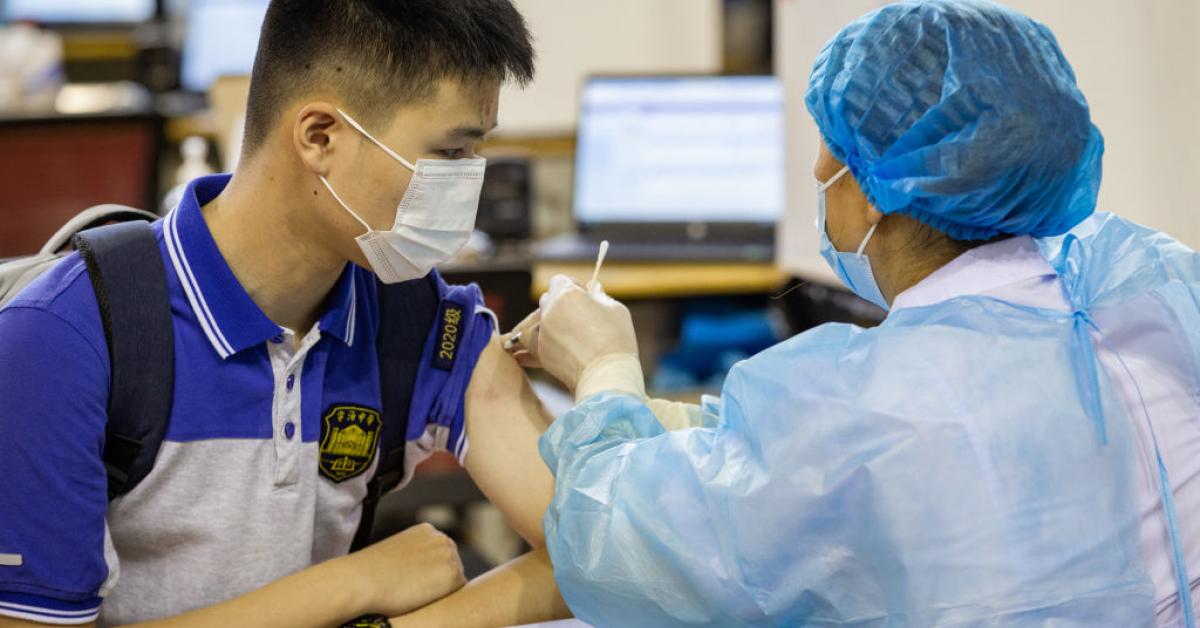By
New Israeli study on natural immunity casts doubt on university claims that only vaccines can protect community.
Michigan State University recognizes COVID-19 vaccines not approved for use in the United States with lower documented efficacy than natural immunity, according to a federal lawsuit.
It’s the second filed by the New Civil Liberties Alliance (NCLA) against a public institution of higher education for refusing to exempt recovered individuals from a vaccine mandate.
Unlike its lawsuit against Virginia’s George Mason University, which NCLA withdrew Aug. 20 after GMU granted its client a medical exemption, the civil liberties group is seeking class-action status for the MSU suit. The Food and Drug Administration has also since approved a COVID-19 vaccine on a non-emergency basis.
Pfizer’s Comirnaty vaccine is “legally distinguishable” from the drugmaker’s BioNTech vaccine, which remains under emergency use authorization (EUA), NCLA told the court.
The former “is not widely available in the United States,” meaning MSU is still “essentially” forcing recovered employees including lead plaintiff Jeanna Morris to take either EUA vaccines or “worse yet” domestically unapproved vaccines recognized by the World Health Organization (WHO).
This explicitly violates the federal statutory framework for EUA vaccines, which requires the “free and informed consent of individuals” taking them, as well as the Ninth and Fourteenth Amendment rights of employees, according to the suit.
While MSU offers religious and medical exemptions, the former requires an intensive inquiry into a person’s beliefs and practices, and the latter is only granted for CDC-recognized contraindications.
Morris is seeking a preliminary injunction against the vaccine mandate on the basis that MSU has required all employees — including fully remote workers such as her — to take at least the first of a two-dose vaccine by Aug. 31 or face discipline, including termination.
The docket shows the case was just assigned a judge Aug. 30, raising doubts about whether she can meet that deadline. Morris blames MSU for not providing an “early-peek, truncated version” of the mandate until a month before, and claims “earlier versions contained less information” about the extent of the requirement.
‘Less prone to evasion by the variants’
The evidence for the robustness of natural immunity relative to vaccine-induced immunity continues to grow.
A large Israeli study awaiting peer review concluded that “natural immunity confers longer lasting and stronger protection against infection, symptomatic disease and hospitalization caused by the Delta variant” of COVID-19, which is dominant in Israel, compared to the two-dose BioNTech vaccine. (Recovered people who only took the first dose had improved protection, however.)
Researchers not involved in the study warned Science and MedPage Today that people shouldn’t seek out infections because COVID-19 is still dangerous to some groups.
A peer-reviewed paper in the forthcoming edition of the Journal of Immunology concluded that a “typical case of mild COVID-19” results in “long-lived, self-renewing memory” of the so-called CD8-positive T-cells that fight off the novel coronavirus.
The paper said these T-cells are “less prone to evasion by the variants of concern emerging worldwide” relative to antibodies, according to excerpts posted by the president of Concerned Ontario Doctors. If they show the same dynamics as T cells from SARS-CoV-1, the early 2000s predecessor to COVID-19, these T-cells “can persist for up to 17 years, and perhaps even longer.”
The MSU lawsuit cites the new Israeli research as well as earlier data from Israel, a highly vaccinated country, and other research on T- and B-cell longevity. Natural immunity was also deemed to have a similar “protective effect” as a two-dose vaccine, based on a review of research presented on a July “clinician call” hosted by the CDC and Infectious Diseases Society of America. (The lawsuit lists the wrong date for the call.)

“Given that there is currently more data on the durability of naturally acquired immunity than there is for vaccine immunity, researchers rely on the expected durability of naturally acquired immunity to predict that of vaccine immunity,” the suit says.
NCLA lawyer Jenin Younes told Just the News her group updated its review of natural immunity studies since the GMU lawsuit. The Israeli study was published just two days before NCLA’s MSU suit.
Both university lawsuits share much in common, including declarations by Harvard Medical School’s Martin Kulldorff and Stanford Med’s Jay Bhattacharya, the coauthors of the Great Barrington Declaration, on the efficacy of natural immunity.





